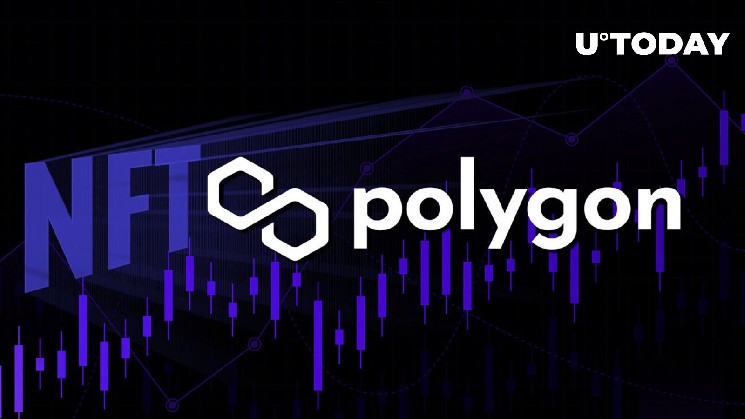Why Is Polygon (MATIC) Outpacing Ethereum in NFT Sales?

Polygon (MATIC) has had a good run on the cryptocurrency market with network upgrades such as improvements in its staking and gas rates. In addition, it has important partnerships inside and outside the cryptocurrency market, which contribute even more to its growth.
One of the areas in which Polygon has been growing is in the sector of non-fungible tokens (NFTs). To give an idea of the extent of the Layer 2’s growth, it has managed to sell more individual NFTs on its network than Ethereum (ETH).
In January, the OpenSea marketplace reported over 1.5 million NFT sales on Polygon’s scalable network, outpacing Ethereum’s 1.1 million sales in the same period. Despite Ethereum recording a higher traded value in NFTs ($446 million) compared to Polygon’s $15.4 million, Polygon has consistently outperformed the smart contracts platform in the NFT sector since the end of 2022.
The highest volume NFT collections on Polygon, according to OpenSea data, are Trump Digital, Lens Protocol and Unstoppable Domains.
What could be behind Polygon’s performance
The decline of Solana (SOL) may have played a significant role in the recent success of Polygon (MATIC) in the NFT sector. Solana was once a major player in NFTs and second only to Ethereum, but its fall after the FTX collapse has negatively impacted its performance in this area.
Additionally, several scandals have contributed to Solana’s loss of ground to Polygon. For instance, in early 2023, Magic Eden, Solana’s NFT marketplace, sold counterfeit digital art, causing harm to the reputation of the NFT marketplace. Although the project pledged to compensate affected buyers, the damage has already been done.
Furthermore, the team behind NFT projects y00ts and DeGods received a $3 million investment to transition its Solana collections to Polygon, putting additional pressure on the SOL blockchain. According to Frank III, founder of the projects, the move to Polygon was made due to its superior platform for their projects.
Polygon’s strategic partnerships and low-fee model also contribute to its growth in the NFT world. By partnering with companies such as Meta, Starbucks and gaming projects, Polygon adds value to its ecosystem. Its fee structure, which is significantly lower than Ethereum’s, makes it a more attractive option for NFT projects. Additionally, Polygon’s unique architecture allows for easier and faster creation, trade and transfer of NFTs compared to the Ethereum network. With these factors working in its favor, Polygon is poised for continued growth in the NFT sector.






 Bitcoin
Bitcoin  Ethereum
Ethereum  Tether
Tether  USDC
USDC  TRON
TRON  Dogecoin
Dogecoin  Cardano
Cardano  Bitcoin Cash
Bitcoin Cash  Monero
Monero  Chainlink
Chainlink  LEO Token
LEO Token  Stellar
Stellar  Zcash
Zcash  Litecoin
Litecoin  Hedera
Hedera  Dai
Dai  Cronos
Cronos  Tether Gold
Tether Gold  OKB
OKB  Ethereum Classic
Ethereum Classic  KuCoin
KuCoin  Cosmos Hub
Cosmos Hub  Gate
Gate  Algorand
Algorand  VeChain
VeChain  Stacks
Stacks  Dash
Dash  Tezos
Tezos  TrueUSD
TrueUSD  IOTA
IOTA  Decred
Decred  Basic Attention
Basic Attention  Theta Network
Theta Network  NEO
NEO  Synthetix
Synthetix  Qtum
Qtum  0x Protocol
0x Protocol  Ravencoin
Ravencoin  Zilliqa
Zilliqa  DigiByte
DigiByte  Nano
Nano  Siacoin
Siacoin  Numeraire
Numeraire  Waves
Waves  Ontology
Ontology  Status
Status  Enjin Coin
Enjin Coin  BUSD
BUSD  Hive
Hive  Pax Dollar
Pax Dollar  Lisk
Lisk  Steem
Steem  Huobi
Huobi  OMG Network
OMG Network  Bitcoin Gold
Bitcoin Gold  NEM
NEM  Augur
Augur